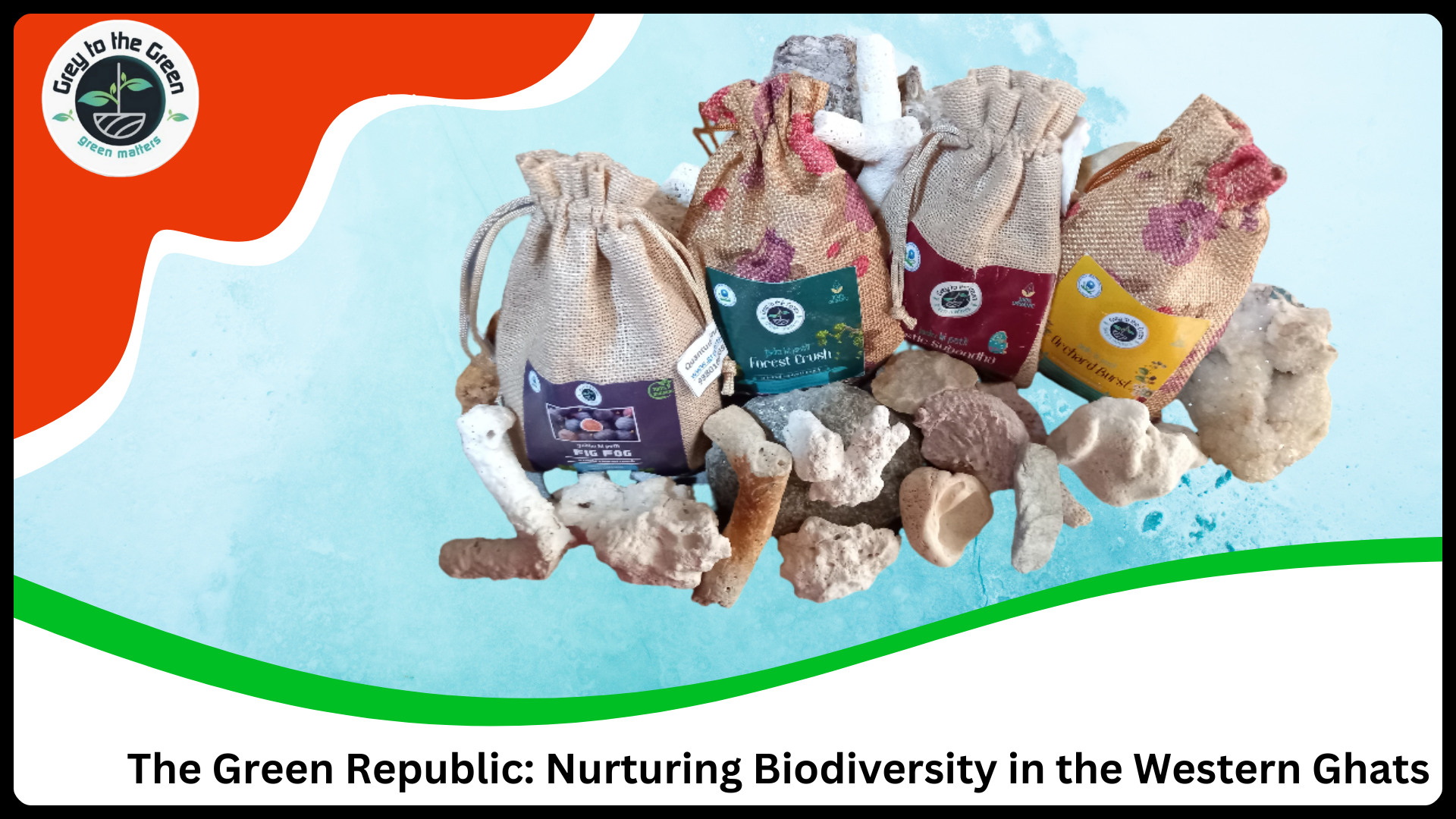In the diverse tapestry of India’s landscapes, the Western Ghats stand out as not just a geographical entity but a crucial hotspot of biodiversity.This lush region, spanning six states, is home to an incredible array of flora and fauna. However, as urbanization encroaches upon these natural treasures, a movement has emerged to bridge the gap between the concrete grey of urban landscapes and the vibrant green of the Western Ghats. In this blog, we explore the efforts to conserve the Western Ghats ecosystem, the role of eco-friendly products, and the transition from fossil fuels to sustainable energy—a journey from the grey to the green.
Conserving the Western Ghats:
The Western Ghats, recognized as one of the world’s biodiversity hotspots, faces numerous threats due to deforestation, industrialization, and unchecked urban expansion. To counteract these challenges, there has been a growing movement to preserve and restore this ecological gem. Conservation efforts range from afforestation projects to wildlife protection initiatives, all with the aim of maintaining the delicate balance of the Western Ghats ecosystem.
Bringing Grey to the Green:


As urban areas continue to expand, the need to integrate green spaces and eco-friendly practices becomes paramount. The concept of bringing the Western Ghats ecosystem into urban landscapes has gained traction. This involves creating green belts, planting native trees, and promoting sustainable urban planning. By doing so, we not only preserve biodiversity but also enhance the quality of life in urban environments.
The Role of Eco-Friendly Products:
A significant aspect of the “Grey to the Green” movement is the incorporation of eco-friendly products into our daily lives. From biodegradable packaging to sustainable building materials, these products play a crucial role in reducing the environmental impact of urbanization. The focus is on integrating these eco-friendly alternatives into various sectors, including eco resorts, hotels, health and yoga centers, and meditation retreats.
Promoting Eco-Friendly Events and Corporate Life:
The shift towards a greener society extends beyond personal choices to corporate and community initiatives. By organizing eco-friendly events, companies can contribute to sustainability goals. Implementing green practices in corporate life, such as waste reduction, energy efficiency, and eco-conscious policies, fosters a healthier work environment and a positive impact on the planet.
Embracing Renewable Energy:
An integral part of the transition from grey to green involves moving away from fossil fuels and embracing renewable energy sources. Solar and wind energy are eco-friendly alternatives that not only reduce our carbon footprint but also pave the way for a sustainable energy future. The promotion of solar-powered infrastructure, electric vehicles, and energy-efficient practices is crucial for a greener tomorrow.
Making Republic Day Greener:
As we celebrate Republic Day, let us channel our patriotic fervor into a commitment for a greener, more sustainable future. Joining the “Grey to the Green” movement means embracing eco-friendly products, supporting biodiversity conservation, and advocating for renewable energy. Let this Republic Day be a call to action-a call to connect the grey of our urban landscapes with the vibrant green of nature because, indeed, green matters. Together, let’s build a Green Republic that thrives in harmony with nature.
Conclusion:
The journey from Grey to the Green is not just a movement; it’s a collective responsibility to preserve the natural beauty and biodiversity that define our nation. By integrating green practices into various aspects of our lives, we can ensure a harmonious coexistence with nature. This Republic Day, let us reflect on the significance of a green republic and take meaningful steps towards a more sustainable and eco-friendly future.



